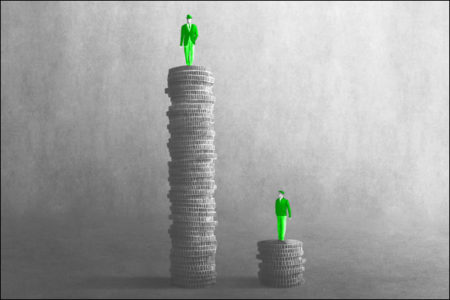
Understanding when news is good probably requires disregarding what’s called the “precautionary principle,” which is the rule that “strongly encourages caution among regulators working in any field with scientific uncertainty.”[1] Throwing caution to the wind, let’s look at the state of US household wealth and income inequality. The US Federal Reserve’s March 2021 quarterly release of household net worth data showed that “the value of Americans’ total assets minus their liabilities swelled to $122.9 trillion” at the end of 2020, up from $111.4 trillion at the end of 2019.[2] Further, when US Census Bureau data are adjusted to count all of the government’s transfer payments as “income” to recipients and when taxes paid are counted as “income lost” to taxpayers. then “income inequality” is lower than it was 50 years ago.[3]
One complaint has been that the US, when compared to other countries, has a higher Gini Coefficient than it should. The Gini Coefficient measures relative wealth within a country, with 0 indicating perfect equality and 100 indicating perfect inequality. With African countries in the 50s and 60s and with our North American and European peers in the mid- to low 30s, a score of 45 for the US is considered poor and needing change. However, adjusting Census Bureau data as described above moves the US Gini Coefficient from 45 to approximately 32 and our trend line is downward sloping, which is an improvement.
Tax Collection Woes Exaggerated
While it is good to be prepared for hard times, there is no occasion for thinking of them as certain. With a balanced economic outlook, the Internal Revenue Service should be looking at collecting the revenue the government needs from compliant taxpayers paying their fair share in what turns out to be good economic times. However, if one were to listen to such diverse sources as the Congressional Budget Office, news reports about former President Trump’s tax returns, or former Treasury Secretary Lawrence Summers or former IRS Commissioner Charles Rossotti, one might believe that the short-staffed IRS won’t be able to collect the $600 billion of taxes owed but not paid, primarily by the owners of closely held US businesses.[4] In fiscal year 2019, the US government took in $1.7 trillion in individual income taxes with total collections of $3.4 trillion. These supposedly nefarious small business owners either do not report or misreport “up to 55% of their business income.”[5] The problem is determining whether or not these small business owners are underreporting their income. The proposed solution from Washington is to require “11 million small business owners to give bank account information to the IRS and reconcile their accounts with their tax returns.”[6]
The better solution is one the IRS uses now, and has been using, for audits. As an example, a husband and wife both have small businesses. Between their individual and business accounts, they have a total of seven bank accounts. The cash portion of revenues which might not be deposited in a bank account is substantially less than 5% of revenue. During an audit, the IRS asks for all bank statements — 12 monthly statements for each account for the audit year — then adds up all the deposits made to each account and asks why the total of $1 million isn’t the couple’s revenue for the year. After backing out transfers between accounts and non-revenue items like loans, the IRS agrees that $500,000 is the correct revenue, as was reported on the couple’s tax returns. The result: no change.
The problem described by former commissioner Rossotti isn’t believable because his estimates mostly inflate a minor and correctable problem. The solution will prove that most US taxpayers are compliant. Two of the seven wonders of the modern world are the US electricity grid and the cohort of mostly compliant and paying US taxpayers. Making each one of these serve too many purposes might damage the usefulness and efficiency of each. We will have no shortage of suggestions over the next year or two on how to make the US tax system more fair, along with considerations about household wealth and income inequality. The unintended consequences of radical change are hard to control. Hopefully our elected officials will realize a good thing operating compliantly and efficiently when they see it.
If you or any of your other advisors have questions about the issues raised here, please contact your investment manager or one of us.
William H. Darling, CPA – Chairman & President
Jeanne M. FitzGerald, CPA – Tax Manager
